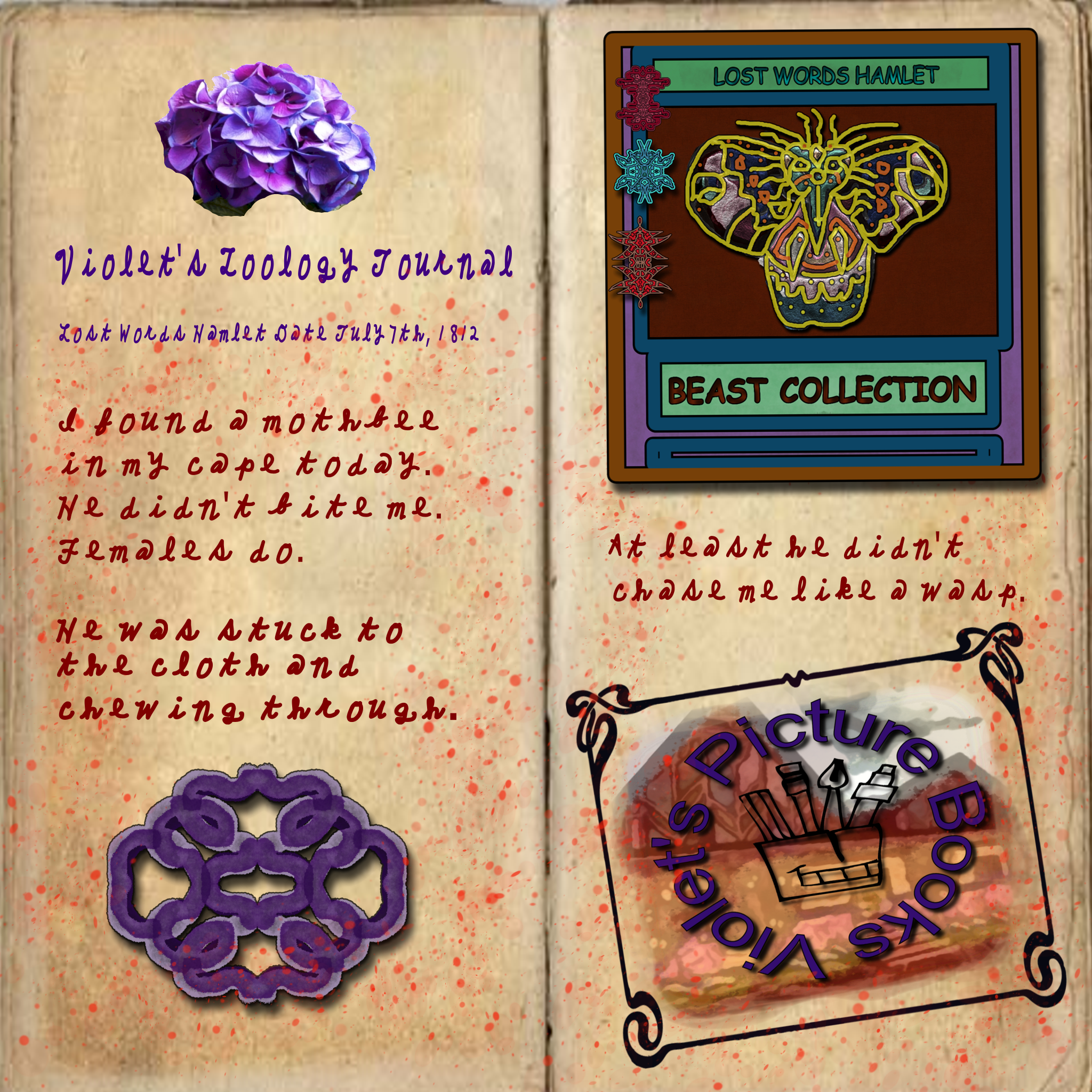Nocturnal Mothbees
Nocturnal
Mothbees are nocturnal. Their eyes are large enough to see 360 degrees in the dark.Basic Information
Anatomy
They flit instead of flying. This makes it a little easier to stop in time to catch a flavorable snack without being noticed. They are 0.0762m x 0.127m. Their colorful wings blend easily with wool or cotton prints.
Genetics and Reproduction
Mothbees produce 4,562 eggs per year. Once the larva stage is over, approximately 3,203 moths take flit. Corrections to that number are made when Mothbees can't find a good overcoat to munch on during winter. The lack of food and warmth can lead to Mothbee demise.
Dietary Needs and Habits
Mothbees eat wool and cotton. Silk clogs up their stinging apparatus. Mothbees are prey for bats, so Mothbees join a defensive group and fight back. They celebrate with a bat meal.
Additional Information
Perception and Sensory Capabilities
When they hear the Lost Words Hamlet clock ring 9 times, they appear in droves. Light does not change their schedules. It is the clock. At midnight females sting anyone in range of flit. Hamlet residents learned long ago to remain indoors during the 15 minutes before and after the stroke of midnight.




Comments